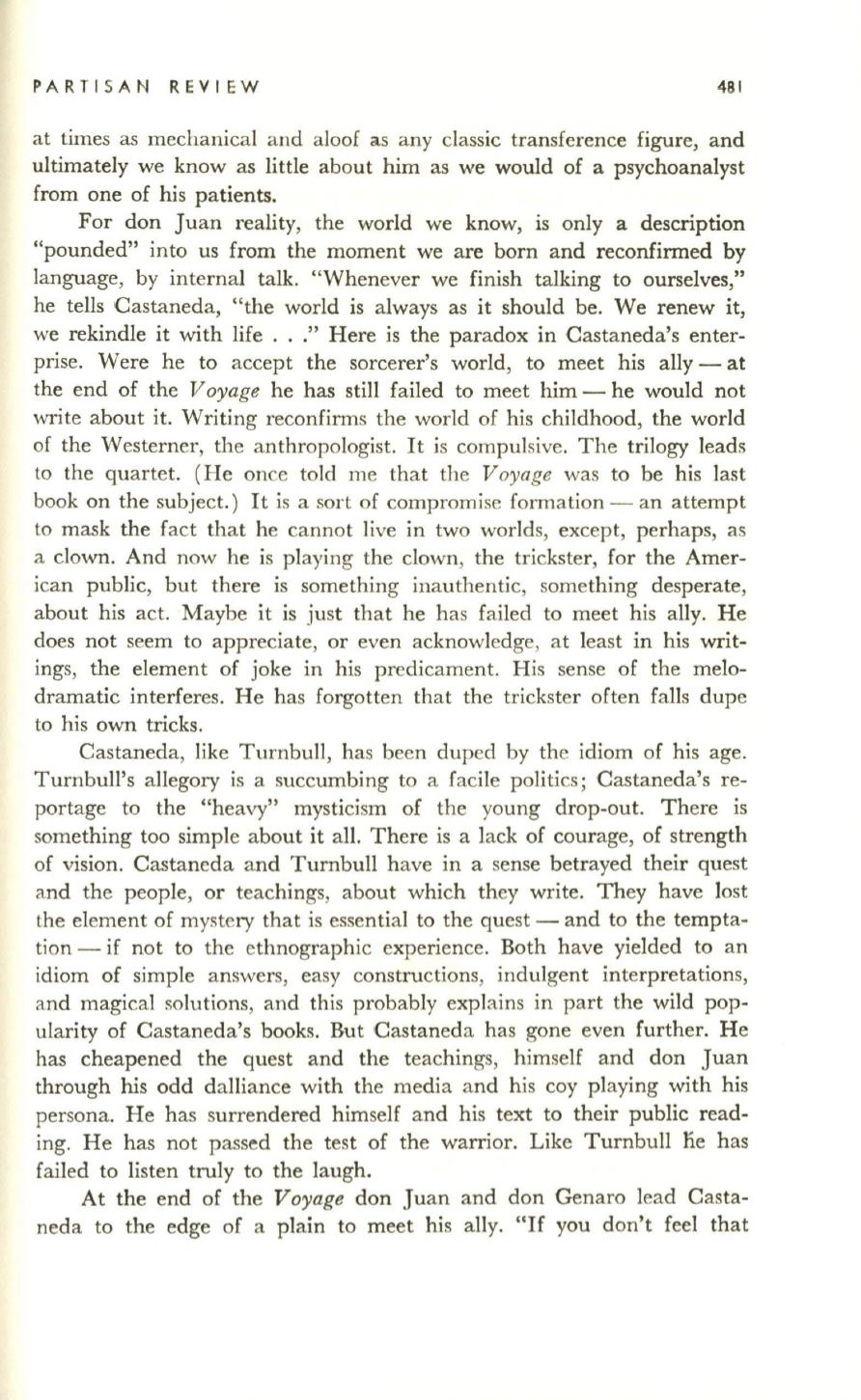
PARTISAN REVIEW
481
at times as mechanical and aloof as any classic transference figure, and
ultimately we know as little about him as we would of a psychoanalyst
from one of his patients.
For don Juan reality, the world we know, is only a description
"pounded" into us from the moment we are born and reconfirmed by
language, by internal talk. "Whenever we finish talking to ourselves,"
he tells Castaneda, "the world is always as it should be. We renew it,
we rekindle it with life ..." Here is the paradox in Castaneda's enter–
prise. Were he to accept the sorcerer's world, to meet his ally - at
the end of the
V oyage
he has still failed to meet him - he would not
write about it. Writing reconfirms the world of his childhood, the world
of the Westerner, the anthropologist. It is compulsive. The trilogy leads
to the quartet. (He once told me that the
Voyage
was to be his last
book on the subject.) It is a sort of compromise formation - an attempt
to mask the fact that he cannot live in two worlds, except, perhaps, as
a clown. And now he is playing the clown, the trickster, for the Amer–
ican public, but there is something inauthentic, something desperate,
about his act. Maybe it is just that he has failed to meet his ally. He
does not seem to appreciate, or even acknowledge, at least in his writ–
ings, the element of joke in his predicament. His sense of the melo–
dramatic interferes. He has forgotten that the trickster often falls dupe
to his own tricks.
Castaneda, like Turnbull, has been duped by the idiom of his age.
Turnbull's allegory is a succumbing to a facile politics; Castaneda's re–
portage to the "heavy" mysticism of the young drop-out. There is
something too simple about it all. There is a lack of courage, of strength
of vision. Castaneda and Turnbull have in a sense betrayed their quest
and the people, or teachings, about which they write. They have lost
the element of mystery that is essential to the quest - and to the tempta–
tion - if not to the ethnographic experience. Both have yielded to an
idiom of simple answers, easy constructions, indulgent interpretations,
and magical solutions, and this probably explains in part the wild pop–
ularity of Castaneda's books. But Castaneda has gone even further. He
has cheapened the quest and the teachings, himself and don Juan
through his odd dalliance with the media and his coy playing with his
persona. He has surrendered himself and his text to their public read–
ing. He has not passed the test of the warrior. Like Turnbull fie has
failed to listen truly to the laugh.
At the end of the
Voyage
don Juan and don Genaro lead Casta–
neda to the edge of a plain to meet his ally.
"If
you don't feel that


